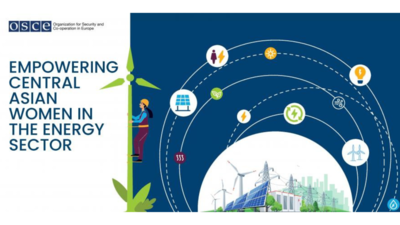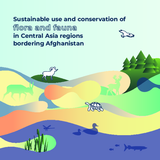
Energy security

The Co-ordinator’s Office promotes dialogue between participating States on energy security and builds their capacity to protect their energy infrastructure; mitigate risks, deploy sustainable energy; and advance an inclusive, resilient and secure energy transition.
Quick links
Overview
An important part of the OSCE’s comprehensive security approach
Energy security means having stable access to energy sources on a timely, sustainable and affordable basis. Access to energy is not only crucial in supporting the provision of basic needs, such as food, light, water and essential health care, but it is first and foremost a precondition for economic growth, political stability and prosperity. This is why energy security forms an important part of the OSCE’s comprehensive approach to security.
The energy sector is evolving to become more sustainable, adaptable to the growing energy demand, and prepared for an increasingly interconnected and digital world. While the energy world of tomorrow will bring many opportunities, it also creates new security-related challenges. Extreme weather events, geopolitical tensions, and cyber attacks can put energy supplies at risk and cause significant disruptions with far-reaching domino effects in all aspects of life.
Energy security is a cross-cutting issue that requires a multidimensional and co-ordinated response, along with substantial transnational investments, knowledge transfer and technology exchange. This is even more crucial for ensuring a successful transition to clean energy throughout the OSCE area.
Our work
Our thematic and programmatic tasks
The Office of the Co-ordinator works closely with OSCE field operations to provide analysis, capacity-building and training and conducts regional workshops on energy security and sustainability. Its work focuses on the promotion of multilateral energy security dialogue and co-operation, the protection of critical energy infrastructure, and the promotion of an inclusive and resilient energy transition, including through women’s empowerment in the energy sector and efforts to expand clean energy access in rural and remote areas.
In addition, the Office has developed a wide range of tools, practical guidelines and tailor-made workshops, and has put them at the service of participating States. The Office conducts feasibility studies, organizes study visits and implements projects aimed at raising awareness of the benefits of green technologies and digitalization, and promoting sustainable connectivity and resilient energy transition in the OSCE area. It also promotes an inclusive dialogue between producer, consumer and transit countries and fosters public-private co-operation on energy security issues.
Featured
Activities, news and other highlights

E-learning course: 2024 Renewable Energy, Energy Transition and Energy Efficiency in Central Asia
This course was developed to equip specialists with the necessary skills for future energy jobs while encouraging them to pursue careers and promote this ch

E-learning course: Protecting Critical Energy Infrastructure
From Risk Analysis to Risk Management—techniques and tools for improving the resilience of critical energy infrastructure.
News and activities
Current announcements, press releases, media advisories and other updates
Projects
Initiatives funded by individual states and organizations
Resources
Official OSCE documents, publications and other manually selected resources
Studies and reports
Reports, studies and analyses for policymakers, researchers and all those interested in this field of our work






